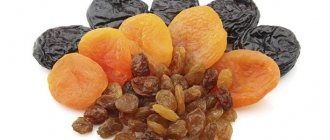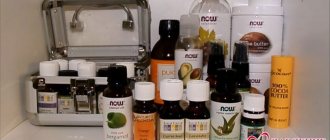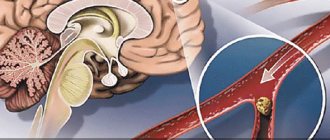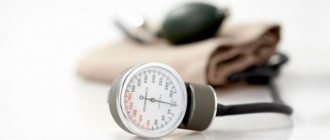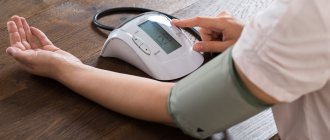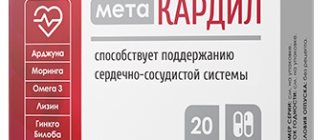When the weather changes sharply and we are forced to move from frost to thaw and back to ice and snow, the atmospheric pressure also changes: first it rises, then decreases, and then returns to high values. Weather-dependent people feel these pressure surges very well; their own blood pressure can also jump depending on the atmospheric pressure. This is especially evident in those who suffer from high blood pressure.
Hypertensive and hypotensive patients know very well the medications they need to regulate blood pressure. But if you do not have pronounced hypertension, but you feel an increase in pressure, then you can improve the situation with the help of healthy drinks. This, of course, does not eliminate the need to consult a specialist and treat your hypertension. Also, if you have chronic problems with blood pressure, it is better to consult with your doctor to understand which foods and drinks you can consume and which you should abstain from.
We'll tell you about drinks that help regulate blood pressure.
Hawthorn decoction
Hawthorn is a very useful berry for strengthening the immune system. Side effect: hawthorn has the ability to lower blood pressure. So if you are hypertensive, then take a closer look at dried hawthorn, which can be easily bought in markets and in some stores.
Hawthorn contains fatty and essential oils, tannins, flavonoids, and natural sugars. Thanks to such a powerful composition, hawthorn tea has an excellent tonic effect in the morning. It invigorates gently, without straining the nervous system, but, on the contrary, calming it. The main property of hawthorn is considered to be its positive effect on the cardiovascular system. It cleanses the blood, increases the elasticity of blood vessels, thereby reducing blood pressure.
Hawthorn can be combined in tea with rose hips. Then the tea will have even more vitamin C and benefits for the immune system, and it will lower blood pressure less.
Hawthorn tea
- 1 tbsp. l. dried rose hips
- 1 tbsp. l. dried hawthorn fruits
- 2 cups boiling water
Pour boiling water over the berries in a thermos and leave to brew overnight. In the morning you can add honey and dilute with hot water.
Lack of oxygen, loss of strength. How pressure surges affect the brain Read more
Which drinks raise and which lower blood pressure?
Freshly squeezed orange juice can cause an allergy-like reaction, even if you have never had a food allergy before. Photo: YAY/TASS
Drinks with high sugar content increase blood pressure and can be dangerous for hypertensive patients - this was the conclusion reached by cardiologists at Imperial College London after analyzing the eating habits of more than two thousand men and women aged 40 to 59 years. What drinks are considered sweet? Those that contain more than 4-5 grams of sugar per 100 grams of liquid (this amount of cola, for example, contains 10.5 grams of sugar).
So, each serving of a sweet drink (200-250 grams) increases blood pressure by 5-7 units. In addition, those who love sweet sodas receive 400 so-called empty calories every day, which do not go to “fuel” for the body, but settle on the waist and hips.
Sugary drinks also create a quick feeling of fullness. And this leads to the fact that people often refuse nutritious food rich in vitamins and microelements. There are studies showing that people who drink more than 0.5 liters of sweet soda per day often experience a lack of calcium, magnesium and potassium in their bodies, which are necessary for blood vessels, the heart and normal metabolism.
But, of course, it cannot be said that all sweet drinks are categorically harmful. For example, sweet black tea with sugar and lemon is an excellent way to increase blood pressure in the morning if you are hypotensive. Dried fruit compote stimulates the heart.
Drinks with a sour taste lower blood pressure (many fruit acids are antispasmodics, that is, they help dilate blood vessels). Red or white dry wine diluted 1 to 2 with table mineral water increases vascular tone and helps relieve tension.
Strong alcoholic drinks (vodka, cognac, whiskey, tequila) first dilate blood vessels and then cause spasms. In addition, any alcohol enhances the effect of cardiovascular medications, and as a result can give an unpredictable result.
Beer increases the load on the pancreas and, as a result, on the blood vessels of the abdominal organs and the heart.
Sweet wines and vermouths also increase blood pressure. In addition, they often cause allergies due to the high concentration of enzymes and the addition of herbs and fruits.
BY THE WAY
Is fresh juice an enemy to the stomach?
— Even the highest quality freshly squeezed juices can cause serious problems with the digestive system, said Australian scientists led by Professor Ross Butler from the University of South Australia (Sydney). They decided to find out how universally recognized sources of vitamins actually act on the body. The results of three years of research have shown: for a fairly high percentage of people, fresh fruit juices are generally contraindicated! And these people do not even suspect that they suffer from a disease - fructose malabsorbers (that is, fructose intolerance). Professor Butler listed the alarming symptoms of this problem:
- Usually, stomach pain, bloating and other digestive symptoms can occur even after drinking a glass of fruit juice. And the point here is not at all about the quality of the product, but about the body’s inability to process the natural sugar contained in the juice. Fresh apple juice is recognized as one of the most insidious.
Doctors closely studied the symptoms and diagnoses of several thousand children and adults who had stomach complaints. Fructose intolerance was found in 80% of children under 1 year of age and 40% of children from 1 to 6 years of age. The true diagnosis turned out to be the same for more than 30% of adolescents under 16 years of age and adults.
But freshly squeezed orange juice is fraught with the development of an allergic-like reaction, even if you have not had a food allergy before. Nutritionist Svetlana Berezhnaya explains:
— The fact is that often “forage varieties” of oranges are used for juice, that is, they are more sour, they have a lot of bitterness and few vitamins. So, despite their seemingly harmless nature, it is also better to either make fresh juices yourself or drink them in trusted places.
In general, fruit juices should not be drunk on an empty stomach. They not only increase stomach acidity, but also blood sugar, and this can cause unpleasant sensations such as a mild form of panic attack (restlessness, anxiety, palpitations). The best time for juice is the middle of the working day, when we are already tired and the body needs fiber and sugars.
BY THE WAY
Five refreshing drinks that are easy to make at home
1. Lemon water
The easiest, refreshing and healthy option is to squeeze the juice of half a lemon into half a liter of water. Don't add sugar, maybe a little honey. The result is a drink filled with vitamin C, and it is ascorbic acid that we lose most quickly in the heat. It’s also very good to add the juice of one cucumber and a couple of sprigs of mint to cold water. Or blend the cucumber in a blender until pureed, add a few basil leaves per liter of water. Strain to avoid large pieces. You can lightly salt it with sea salt, because in the heat we also lose it through sweat, and therefore we need to restore the water-salt balance.
2. Ginger lemonade
An excellent summer remedy - relieves vascular spasms, helps with intestinal disorders. Ginger lemonade is also an excellent remedy for motion sickness. The taste, of course, is not for everyone - because of the spiciness. But you can reduce the concentration of ginger and add lemon and a spoonful of honey, which will soften the “pepper” taste. Grind or grate 5 - 7 cm of fresh ginger root, add to a liter of warm water. You can add two or three mugs of lemon and a spoonful of honey. Cool and strain.
3. Linden ice tee
Deputy Director of the Institute of Herbal Medicine, Ph.D., Phytotherapist Elena Korsun spoke about the benefits of this wonderful summer drink: “Not only flowers, but even linden leaves have a wonderful property - they save the brain, heart, liver from hypoxia (lack of oxygen), which often haunts citizens who are in stuffy rooms, stuck in traffic jams on city highways. Linden helps restore the nervous system and heart in case of heart failure and atherosclerosis. An infusion of linden blossom or leaves is recommended even for young children - it strengthens the nervous system. Brew like regular tea, one teaspoon of linden blossom (or leaves) per 250 ml of boiling water. In the evenings you can drink hot tea, and you can take it chilled with you - instead of store-bought ice-ti.”
4. Mint and currant tea
“In general, in the summer, herbal infusions are the best drink that will quench your thirst and save you from stuffiness,” comments Elena Korsun. - For example, brewed like tea (a teaspoon of the collection per glass of boiling water), and a strained collection of mint leaves, currants and oregano. Add a few rose hips, which will give vitamin C. For sourness, add cherries or currants. Everything is good in this collection. For example, oregano helps with insomnia, general fatigue and weakness, to increase the overall tone of the body. Mint is a mild antispasmodic. Currant leaves, like the berries, are rich in flavonoids and vitamin C. They are an excellent option for the sweltering summer.
5. Rhubarb compote
Thanks to chlorophyll, this sour stem is very useful. Chlorophyll has an effect on the blood almost like hemoglobin: it increases oxygen levels and accelerates intercellular metabolism. It also helps with anemia, regulates blood pressure, and reduces nervousness.
It is very simple to prepare - 5-7 stalks of rhubarb per liter of water, which must first be peeled from films and cut into small pieces. If you want it sour, add more rhubarb. You can add half a teaspoon of sugar per liter of water. Boil for 2 - 3 minutes. Remove from the stove and leave to steep for half an hour.
Tea with viburnum and other red berries
Viburnum, lingonberries, cranberries - all the late red berries, which we mashed with sugar in the fall, froze and pressed the juice from them, will now be very useful. Including due to its ability to lower blood pressure.
Viburnum has a diuretic effect, and thanks to its antioxidants, flavonoids and vitamin C, it is very useful for colds.
Cranberry makes the intestines and stomach work better; it contains many flavonoids, substances that make blood vessels more elastic.
You can simply pour hot water over frozen or crushed berries, or add juice to tea/water. You can also add some dry herbs or spices, because not all berries have a very pleasant taste; viburnum has a rather specific taste.
Hypertensive menu. Simple foods that lower blood pressure Read more
Water
Clean water is one of the important ways to regulate blood pressure. Dehydration has a very bad effect on overall well-being, in particular on blood pressure. But drinking clean water in the required amount (usually this norm is 30 ml per 1 kg of body weight) helps stabilize blood pressure, improve the functioning of the cardiovascular system, and improve the process of hematopoiesis.
You can add a slice of lemon to a glass of water. This fruit contains potassium and magnesium. The last element helps relax muscles and improves blood circulation.
It is forbidden to make mistakes. How to measure blood pressure correctly Read more
Fruit juices
Pineapple juice, which contains a lot of potassium, is considered very beneficial for blood vessels and blood circulation. But it is better to be careful with it, since pineapples are contraindicated for people with chronic diseases of the gastrointestinal tract. And even if there are no such diseases, gastroendocrinologists recommend diluting it and drinking it in small portions throughout the day, but not more than 1 glass.
Pomegranate juice is used to fight arterial plaques, watermelon juice fights dehydration and improves kidney function, apple juice tones veins and blood vessels, grape juice improves metabolic processes in the body.
Important! Note that drinks have a positive effect over time. That is, to achieve visible improvements, you need to drink tea with hawthorn for at least a couple of months.
There are contraindications. Be sure to consult your doctor.
How to drink correctly
Rules for drinking juices:
- The healthiest juice is a freshly prepared drink. 30 minutes after production, all drinks begin to lose their healing properties.
- You should not add table salt to drinks, as this will increase blood pressure.
- Useful nectar should be drunk slowly, in small sips for 3 minutes.
- It is best to drink the drink on an empty stomach.
Treatment of hypertension with natural juices should be carried out for a long time.
You cannot expect a positive effect immediately after drinking a glass; treatment must be long-term and complex. Author of the article Svetlana Anatolyevna Ivanova, general practitioner
